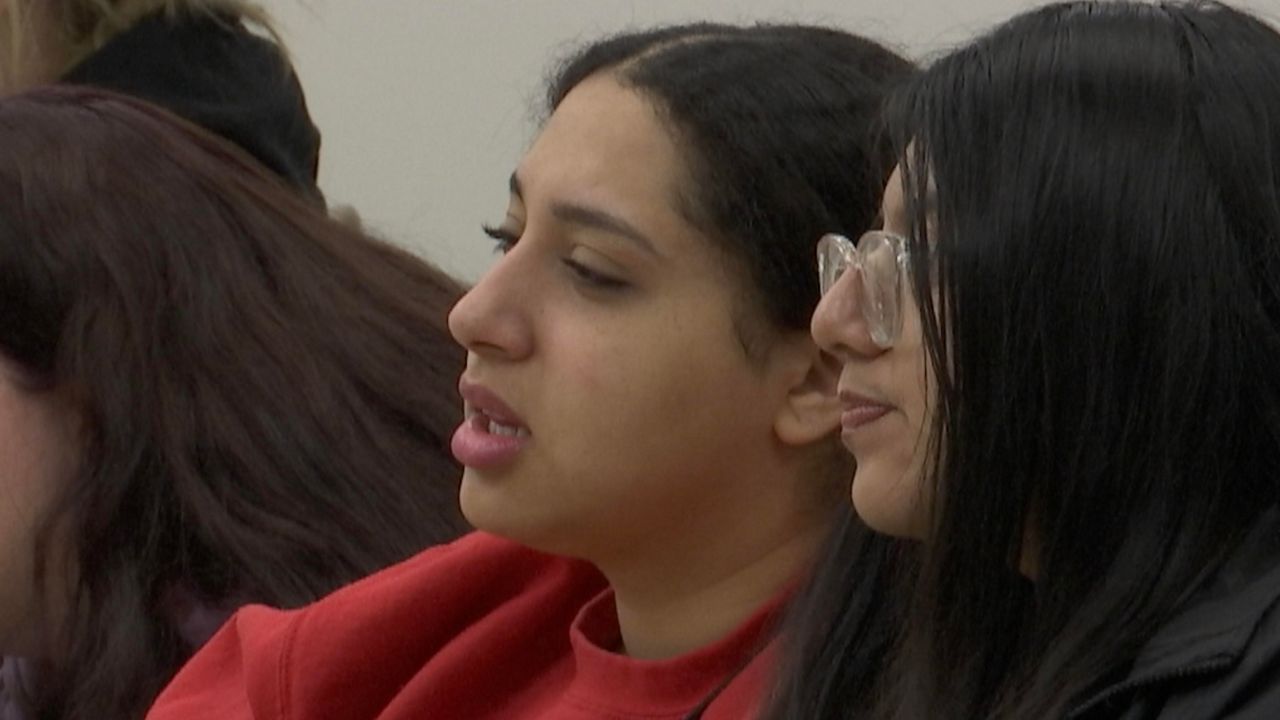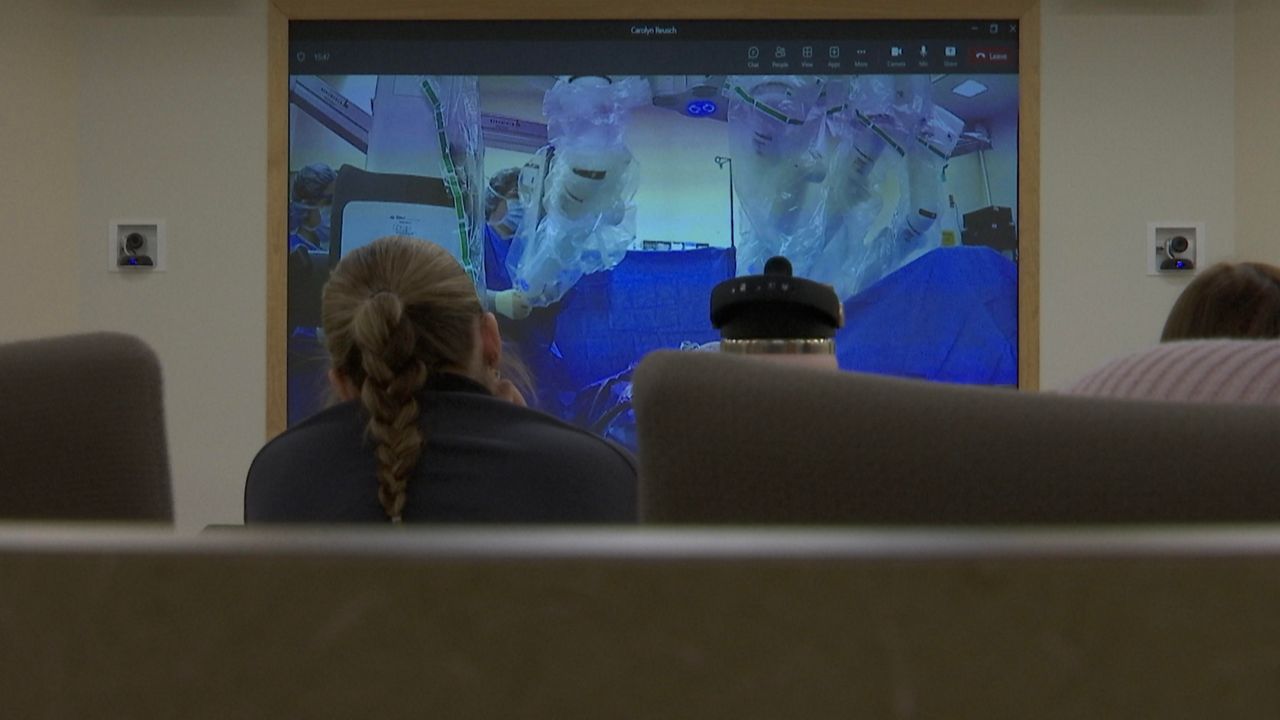ERLANGER, Ky. — Watching a live surgery might scare someone off from wanting to work in health care, but it could also inspire Kentucky’s next generation of doctors and nurses.
Some high school students in northern Kentucky got to experience that exact scenario.
Over 100 students, who are interested in health care, opted in to watch a live stream of a hernia surgery performed by a St. Elizabeth Healthcare surgery team.
“This program is designed to give the student an experience of seeing the different careers in the O.R. And to see the different vocations, and the possibilities of what they can do when they grow up,” said St. Elizabeth’s System Director of Organizational Development, Lisa Blank. “If you want to go into a health care career, you need to care about people. You need to take care of people. And if there is anything that we can get kids excited about, it’s taking care of people.”

Eboni White, a 16-year-old Newport High School Student, said she and her fellow students probably needed to find out sooner rather than later how much of the graphic surgery they could stomach.
“I’ve never really had a problem with it. Yeah, I can see it. It’s not the best thing to look at, but I don’t really have a problem with it,” White said. “It was kind of gory. Not too gory, but a little bit of blood.”
White said, even after watching the surgery, she wasn’t at all discouraged from her goal of becoming an ultrasound technician.
“The job that I want to do, I wouldn’t have to touch the inside of that, so no problem for me,” she said. “If I was touching it, then maybe it would be a little bit different. But he had little robot hands, so he didn’t really have to touch it.”
The little robot hands she’s referring to took Dr. Michael Davenport over 50 practice rounds to master. Davenport told students he can now use them with relative ease to pull off precise actions inside the patient’s body.
“I don’t know if I’d be able to be that coordinated, because you can’t feel it. You don’t know if you’re going too hard, if you’re going too fast, or anything,” White said. “I think the technology we have now is amazing. But in the future, I think there are going to be way more things to discover.”

That’s exactly the intrigue Blank said she was hoping the robotics program could inspire.
“We need future health care professionals. It is critical,” Blank said. “Even in the state of Kentucky, we know there is going to be a huge shortfall for just nursing alone. Supply versus demand. Physicians will be the same way. So if we can spur interest, get kids excited, want to do more, and have a career in medicine, we win.”
Bellevue High School Instructional Coach Nick Skaggs said it was a valuable experience for his students, even if they ultimately decide not to go into health care.
“It’s just awesome to watch them see something that they have thought about doing become real,” Skaggs said. “This is live, and it’s real life, and it becomes more tangible for them. So that goal is no longer just kind of out in the ether. It’s become more solidified for them.”
White said her goal used to be to become a veterinarian. But there’s something about working on people that has recently changed her mind.
“I feel like I could deal with it more. I don’t know if I can see animals being worked on,” she said. “Working with somebody, with people’s families and stuff, that’s an emotional experience you get. You could make somebody feel so much better about themselves or just in general.”
St Elizabeth is also the convener of the Randolph Initiative, which aims to get more African American students involved in health care and create more diverse medical staffs.



